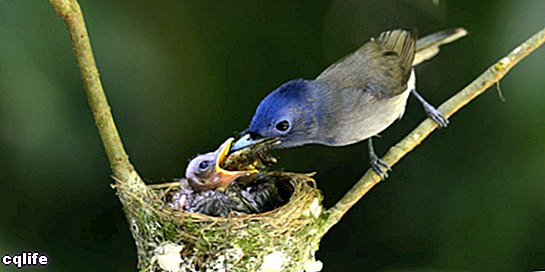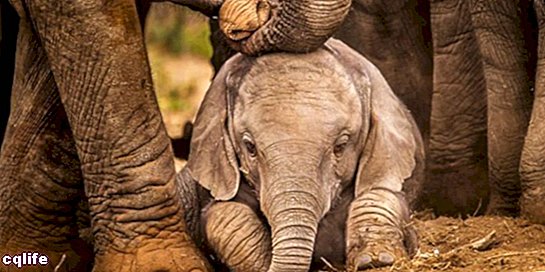- What is biodiversity?
- Importance of biodiversity
- Threats to biodiversity
- Biodiversity and evolution
- Measures to conserve biodiversity
We explain what biodiversity is and its relationship with evolution. Also, what factors threaten it and how to protect it.

What is biodiversity?
Biodiversity or biological diversity is the great variety of ecosystems, and of species different integrating each of them, which exist in the planet, as a result of millions of years of evolution. It is one of the unique and most important features of our planet, in which there are many species adapted to different life environments, carriers of immense genetic variability.
When thinking about biodiversity, all forms of life of the planet are taken into consideration, both vegetables Y animals, What mushrooms Y protozoa. The term not only refers to the number of possible species, but also to the genetic diversity within the species themselves. Likewise, the term applies to the set of all possible ecosystems.
Therefore, the different natural regions of the Earth have different margins of biodiversity, reaching very high rates in the vicinity of the equator, in the habitats jungle. The same is true of the large oceanic coral reefs, around which many underwater species swirl.
Importance of biodiversity
Biodiversity is one of the great treasures of our planet. The diversity and quantity of life available is such that only a fragment of all animal or plant species is known.
For this reason, many answers can be found in this large percentage of unknown beings: medicines, materials, keys to understanding life itself or even to better understanding the history of our planet.
It is impossible to know what is hidden in the vastness of planetary life. That is why it would be unforgivable to destroy it and deprive ourselves of everything we can know, learn and do if we can first benefit from it without destroying it.
On the other hand, biodiversity is necessary for the very complex biological cycles and biogeochemicals that occur on our planet. Impoverishing life on the planet has a direct impact, whether we can appreciate it or not, on the quality of life all, including Humans.
For example, the destruction of wild habitats by deforestation exposes us to new forms of diseases that, had they remained in their native circuit, would never have had contact with us nor would they have risk our health.
Threats to biodiversity

Species like elephants are threatened by human economic interests.
While it is true that natural disasters They put the diversity of life at risk, their greatest threat comes from the economic and industrial activities of human beings. It is we, as a species, who are impoverishing the biodiversity of our planet more and more rapidly, ultimately attacking ourselves.
The main threats to biodiversity from the human being are:
- The modification of the land, soils and territories for agricultural and livestock use.
- Sustained deforestation to fuel the industry lumber and paper mill, or to expand farmland.
- The selective and intensive breeding of some species of commercial value, to the detriment of the existing biological balance in the nature.
- The activities of dredging, channeling of rivers, filling of humid lands and other forms of alteration of the habitat of the species.
- The pollution of the diverse existing ecosystems, due to the by-products of industrial activity or the increasing generation of waste and residues.
- The indiscriminate hunting of some species for commercial purposes, which has brought them to the brink of extinction.
- Destruction of soils due to open pit mining and subsequent Water contamination superficial with metals extracted or the substances used to extract them.
- The accidental introduction of species in distant ecosystems, in which they invade niches and cause biological imbalance.
- The incessant growth of the population human rights and the geographic expansion of cities.
Biodiversity and evolution
Biodiversity is the result of evolution.As we know from Charles Darwin and his later followers, the species of living beings have their origin in the adaptation from pre-existing species to new living conditions, distancing themselves physically or socially from their predecessors until the difference becomes so great that they are now two totally different species.
For example, Darwin discovered that some species of birds on the Galapagos Islands were very similar to those that live on land, but with particular modifications in the shape of their beaks, which showed an adaptation to different niches of feeding: long beaks to remove worms from the wood, sturdy and short beaks to open seeds, etc.
However, they all had common traits that show their shared origin, so that they were once the same species, but with the passage of time, adaptation and specialization of their diets, they became two new species, thus increasing biodiversity. of the region.
Measures to conserve biodiversity
The protection of biodiversity is a task that humans must assume as their own, which in many ways will involve a rethinking of the way in which different economic activities are carried out. In fact, many international organizations try to arrange the different nations so that, together, they can make relevant decisions on the matter.
However, the most urgent measures to protect biodiversity are:
- Regulate economic exploitation activities that have a high environmental impact, such as deforestation, basic industries, mining or farming extensive, such that its cost effectiveness threatened if they are carried out in an unfriendly way environment.
- Similarly, prosecute and stop illegal economic activities, which are not subject to any type of regulation (neither ecological nor otherwise).
- Encourage the responsible consumption, reuse and recycling, as part of a more friendly way of life with the planet, in which we do not fill the habitat of other living beings with plastic and chemical waste.
- Invest in ways Energy sustainable, that have a lower ecological cost and do not threaten life on the planet. At the same time, manage energy in a responsible and non-wasteful way.
- Strengthen the control of the movement of animal and plant species to prevent the accidental introduction of species into habitats where they can become a pest.
- Tighten controls regarding the indiscriminate hunting of endangered species, and at the same time invest in the protectionist efforts of organizations that seek to breed and reintroduce them to their habitat.
